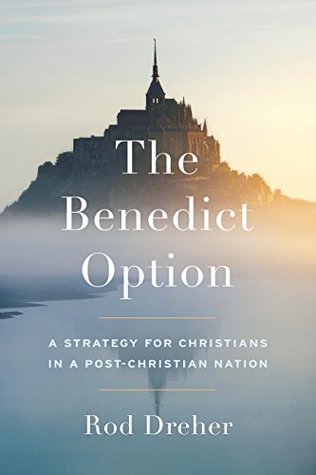More on this book
Community
Kindle Notes & Highlights
by
Rod Dreher
Started reading
October 22, 2017
The purpose of the government, according to
Locke, is not to pursue virtue but rather to establish and guard a social order under which individuals can exercise their will within reason. Government exists to secure the rights of these individuals to life, liberty, and property. The authors of the Declaration of Independence changed this formulation to “life, liberty, and the pursuit of Happiness,” a phrase every American schoolchild learns in his civic catechism.
U.S. Constitution, a Lockean document, privatizes religion, separating it from the state. Every American schoolchild learns to consider this a blessing, and perhaps it is. But segregating the sacred from the secular in this...
This highlight has been truncated due to consecutive passage length restrictions.
all the good that religious tolerance undoubtedly brought to a young country with a diverse and contentious population of Protestan...
This highlight has been truncated due to consecutive passage length restrictions.
laid the groundwork for excluding religion from the public square by making it a matter of private, individual choice. In the American order, the state’s role is simply to act as a referee among individuals and factions. The government has no ultimate conception of the good, and it regards its own role as limited to protecting the rights of individuals. When a society is thoroughly Christian, this is an ingenious way to keep the peace and allow for general flourishing. But from the Christian point of view, Enlightenment liberalism conta...
This highlight has been truncated due to consecutive passage length restrictions.
Adams understood that liberty under the Constitution could only work if the people were virtuous, restraining their passions and directing them toward the good—as defined, presumably, by Adams’s rationalistic religious belief. Fortunately, having gone through the First Great Awakening of the mid-eighteenth century, America was strongly Evangelical, and citizens had a strong shared idea of the Good and a shared definition of virtue. Unfortunately, this would not last.
the nineteenth century, intellectual elites understood that the world around them was quickly fragmenting. “All that is solid melts into air,” said Marx and Engels’s Communist Manifesto (1848), which accurately observed that the Industrial Revolution had destroyed old certainties.
Friedrich Nietzsche understood natural selection to mean that there is no divine plan guiding man’s development. It is random, based on the survival of the fittest. Nietzsche drew on Darwin to formulate a philosophy extolling strength and the individual will.


